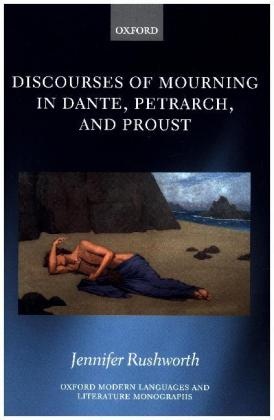Mehr lesen
Zusatztext Rushworth has more than proven her command of literary theory and textual interpretation. Her thirty pages of bibliography testify to her scholarly attentiveness. It is to be hoped that, in her future work, she will explore some of the more imaginative implications of this study and contribute to the ongoing dialogue between medievalists and postmodernists that is invigorating both their fields. Informationen zum Autor Jennifer Rushworth is a Junior Research Fellow at St John's College, Oxford. Klappentext This book brings together three authors who have written movingly about mourning: Dante Alighieri, Francesco Petrarca, and Marcel Proust. Jennifer Rushworth explores how each of them, through their respective narratives of bereavement, grapples with the challenge of how to write adequately about the deeply personal and painful experience of grief. Zusammenfassung This book brings together three authors who have written movingly about mourning: Dante Alighieri, Francesco Petrarca, and Marcel Proust. Jennifer Rushworth explores how each of them, through their respective narratives of bereavement, grapples with the challenge of how to write adequately about the deeply personal and painful experience of grief. Inhaltsverzeichnis List of Abbreviations Introduction: Interpolating the Medieval and the Modern 1: Mourning and acedia in Dante 2: Petrarch's Fraught Poetics of Melancholia 3: Proust's Recherche, Derridean 'demi-deuil', and Mimetic Mourning Epilogue: In Search of an Ending Bibliography Index
Inhaltsverzeichnis
- List of Abbreviations
- Introduction: Interpolating the Medieval and the Modern
- 1: Mourning and acedia in Dante
- 2: Petrarch's Fraught Poetics of Melancholia
- 3: Proust's Recherche, Derridean 'demi-deuil', and Mimetic Mourning
- Epilogue: In Search of an Ending
- Bibliography
- Index
Bericht
Rushworth has more than proven her command of literary theory and textual interpretation. Her thirty pages of bibliography testify to her scholarly attentiveness. It is to be hoped that, in her future work, she will explore some of the more imaginative implications of this study and contribute to the ongoing dialogue between medievalists and postmodernists that is invigorating both their fields. Seth Lerer, Comparative Literature Studies

